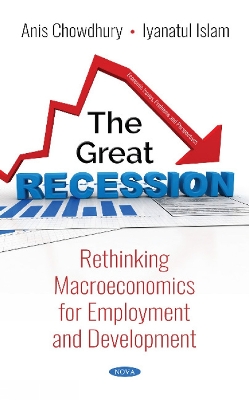The chapters in this volume were written as commentaries between mid-2008 and early-2016 in the wake of the Great Recession of 2008-2009. The primary topics around which the various essays are compiled are: (a) crisis and response, (b) fiscal policy, (c) monetary and capital account policy, (d) employment, and (e) development. The chapters not only provide a critique of mainstream macroeconomics, but also suggest a way forward. This volume contains an extensive introduction to synthesise the debate on macroeconomic orthodoxy and to assess the attempts at its reconstruction in light of its dismal failure in predicting the crisis and responding to it. As a background, it briefly traces the retreat of post-Great Depression Keynesian macroeconomics (with it, full employment as the primary policy goal) and the rise of new orthodoxy (concerned with a single target, inflation) that came to dominate major international financial institutions, notably the International Monetary Fund and the World Bank. It also highlights contrasting analyses of the global macroeconomic issues by the Bretton Woods Institutions (BWIs) vis-a-vis the United Nations, and their contributions to macroeconomics-development discourse. Two main conclusions about the various attempts at reconstructing macroeconomics are that they: (1) suffer from an advanced country bias, and (2) do not pay sufficient attention to employment even in developed countries. The benign neglect of developing countries in reconstructing macroeconomics is not at all surprising, as both post-Great Depression macroeconomics and its orthodox replacement evolved without paying due regard to the particular circumstances and problems of developing countries. The neglect of employment in rethinking macroeconomics shows how deeply orthodoxy still remains embedded in the major institutions, as well as among professional economists and policymakers. There is no sign of any significant shift even when a good deal of research within the BWIs themselves report findings that are contrary to conventional wisdom. Thus, unfortunately, whatever is likely to emerge as post-Great Recession macroeconomics does not seem very encouraging for employment and development. The essays compiled in this volume suggest how macroeconomics can serve the dual objectives of short-term stabilisation and long-term inclusive sustainable development goals with decent and productive employment featuring prominently for both developed and developing countries.
- ISBN10 1536136565
- ISBN13 9781536136562
- Publish Date 2 July 2018
- Publish Status Active
- Publish Country US
- Imprint Nova Science Publishers Inc
- Format Paperback
- Pages 260
- Language English
